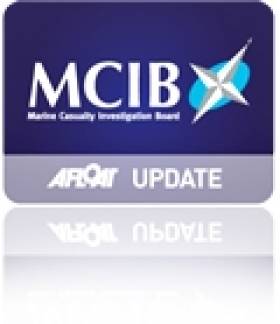Displaying items by tag: Horse Island
The report by the Marine Casualty Investigation Board (MCIB) into the loss of a kayaker in Castletownshend last year has found the death was caused by hypothermia and heart failure due to a pre-existing condition.
Didier Heneault, 56, died while kayaking with his wife Margaret near Horse Island, after his kayak overturned in choppy water.
The French couple, who were experienced kayakers, had set off from the League near Raheen Town in Co Cork on the morning of 30 May 2010, paddling south-east.
On the western side of Horse Island, Mrs Heneault turned and saw that her husband was in thw water about 10m from his kayak. She tried to assist him in climbing out of the water back into the kayak but was unsuccessful.
Mrs Heneault used a safety rope to keep her husband afloat, but after 10 minutes he became unresponsive.
Some hours later passing kayakers heard Mrs Heneault's calls for help and assisted in towing the couple back to shore at Horse Island, where they gave Mr Heneault CPR. They were joined shortly after by the Baltimore Inshore Lifeboat and the Toe Head coastguard unit.
Mr Heneault was transferred to a waiting ambulance at Castletownshend pier where he was treated by paramedics before being taken to Cork University Hospital. There he was pronounced dead at 4.50pm.
The report into the incident by the MCIB said the post-mortem gave the cause of death as cardiac failure due to hypertensive cardiomyopathy following immersion in cold water and associated hypothermia, with a medical history of hypertension.
The report also recommended that lifejackets should be used instead of buoyancy aids when offsore kayaking, where the risk of capsizing is greater. A lifejacket of 150 Newtons or more would have kept Mr Heneault's head above water at all times, it said.





























































